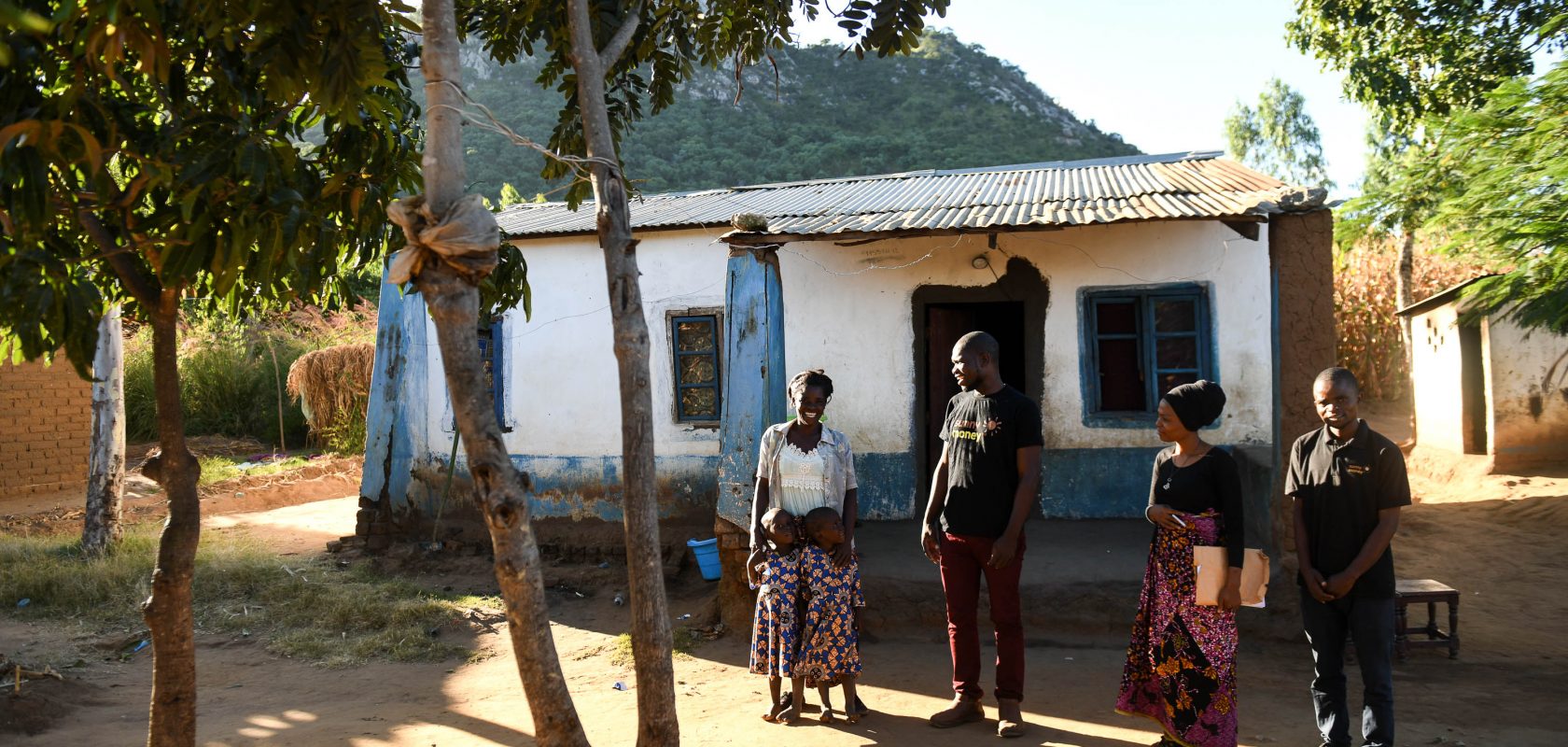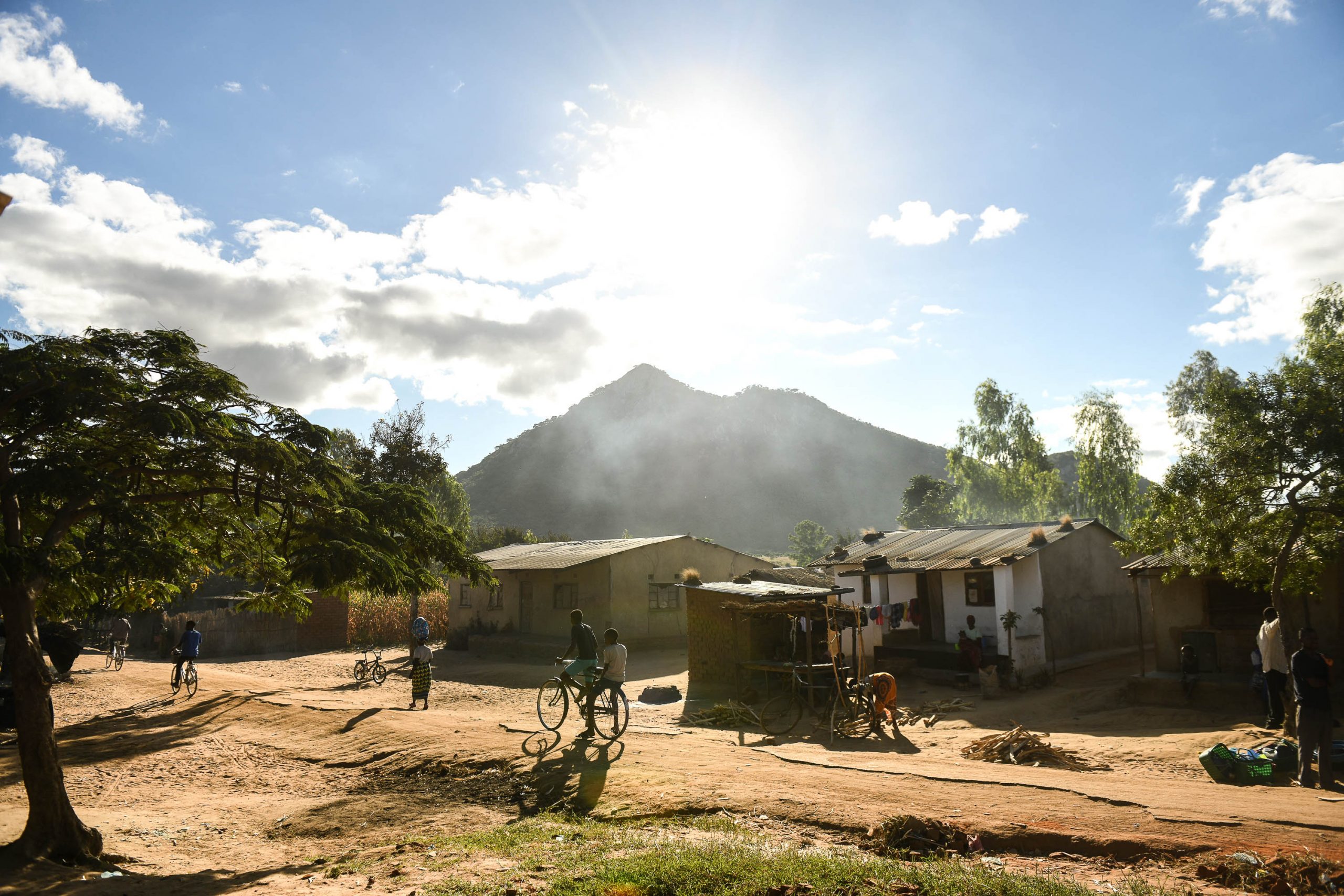
42-year old Nelia Mbewe lives with her 5-year old twin daughters Glory and Grace in a small house behind the main road in Mandevu village in central Malawi. Mandevu is a beautiful, bustling village, but like the majority of villages in Malawi, there is no access to electricity. When the sun sets at 6pm it gets pitch black and it’s difficult to see your surroundings. It quickly gets quiet, and for many people, the sense of security that the light brings fades as the sun is setting.
“I remember one night, I slept on a snake, I just felt something strange under my tummy, I immediately stood up and saw a snake right on my sleeping mat. That experience kept me living in fear at night and I used to have nightmares a lot,” says Nelia who remembers the nights before the family had access to solar lights.
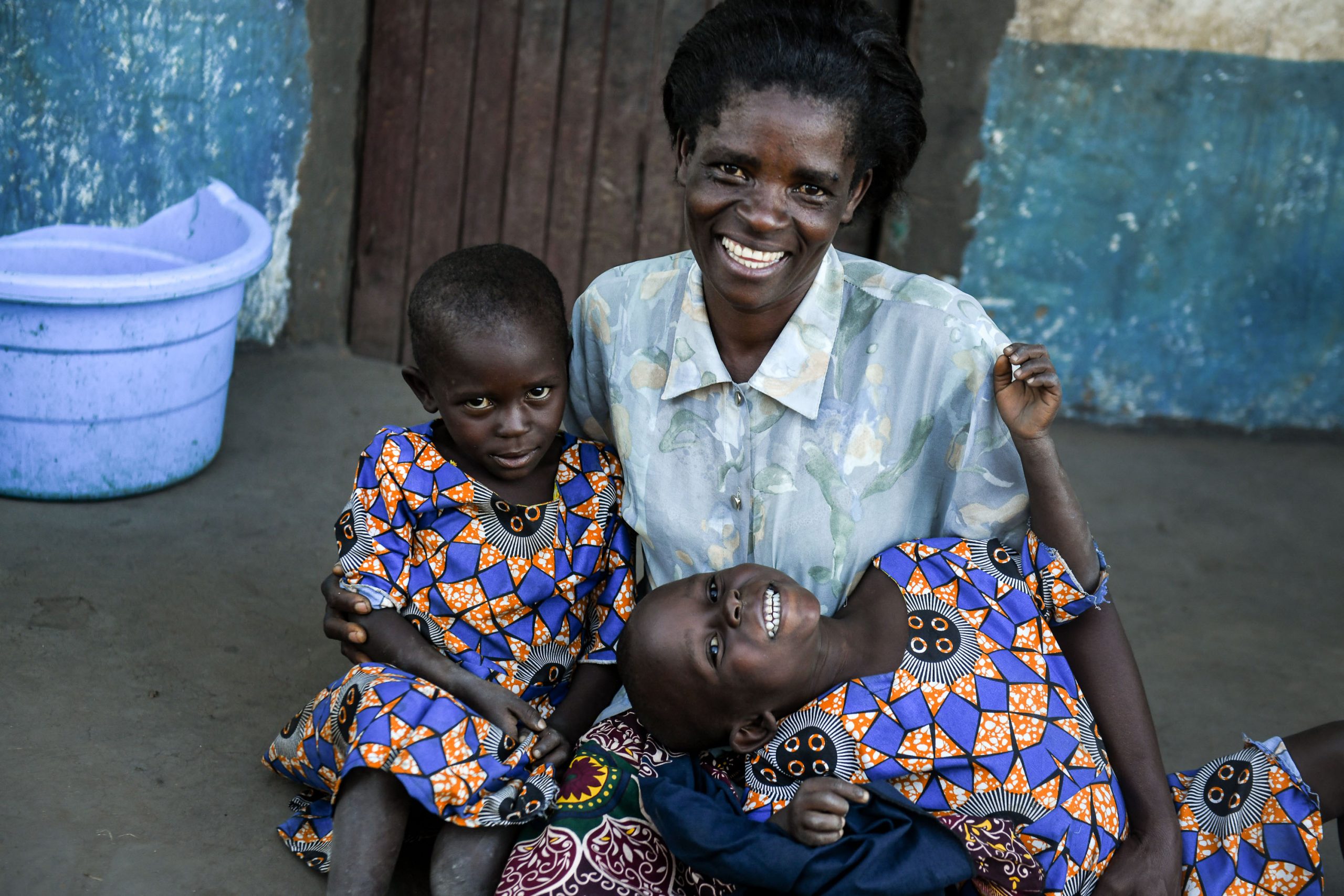
Nelia with her twin daughters Grace and Glory. Photo: SolarAid/Thoko Chikondi
In 2019, SolarAid’s social enterprise, SunnyMoney opened the energy hub Project Switch in Mandevu, a place where people, at a small cost, could borrow charged solar lights to take home with them in the evening.
Since Project Switch launched, our research has shown that one of the most positive impacts of access to solar light in the village has been the increased sense of safety and security. The lack of a sense of security in the darkness is related to worries such as travelling on the roads in the darkness, burglars, or animals coming into your house – but people are also concerned about accidents caused by unsafe lighting sources such as candles.
When there is no access to electricity, the majority of people living in rural Malawi are forced to use unsafe, poor quality or toxic devices to get light in the evening.
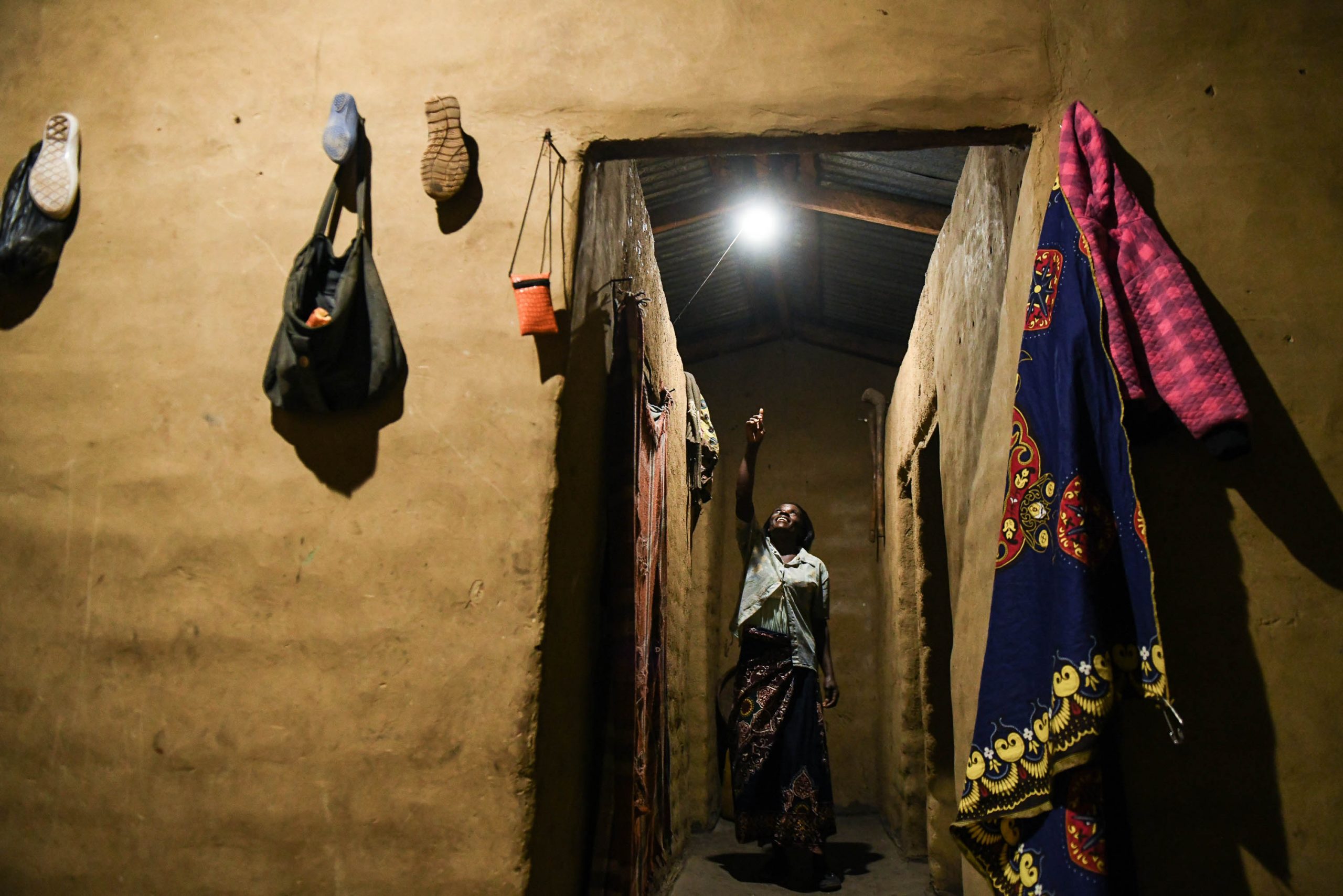
42-year-old Nelia Mbewe points at a solar light in her home. Photo: SolarAid/Thoko Chikondi
Nelia used to use anything she could afford on that day to get light in the evening – sometimes, this would be candles. Other days, she would have no source of light in the night time at all. Since Project Switch was introduced in the village, she has been using a solar home system that she is paying for on pay-as-you-go (PAYGO).
“Life is easier now”, she explains. Her days are no longer cut short, and for her daughters, getting access to light in the evening means that they can stay up and play with their friends after the sun has set, and a group of children is gathering outside their house to play in the little light that the house is giving off.
Nelia is also able to help them with their homework in the evening. Glory and Grace love school and she buys them second hand books that they read together.
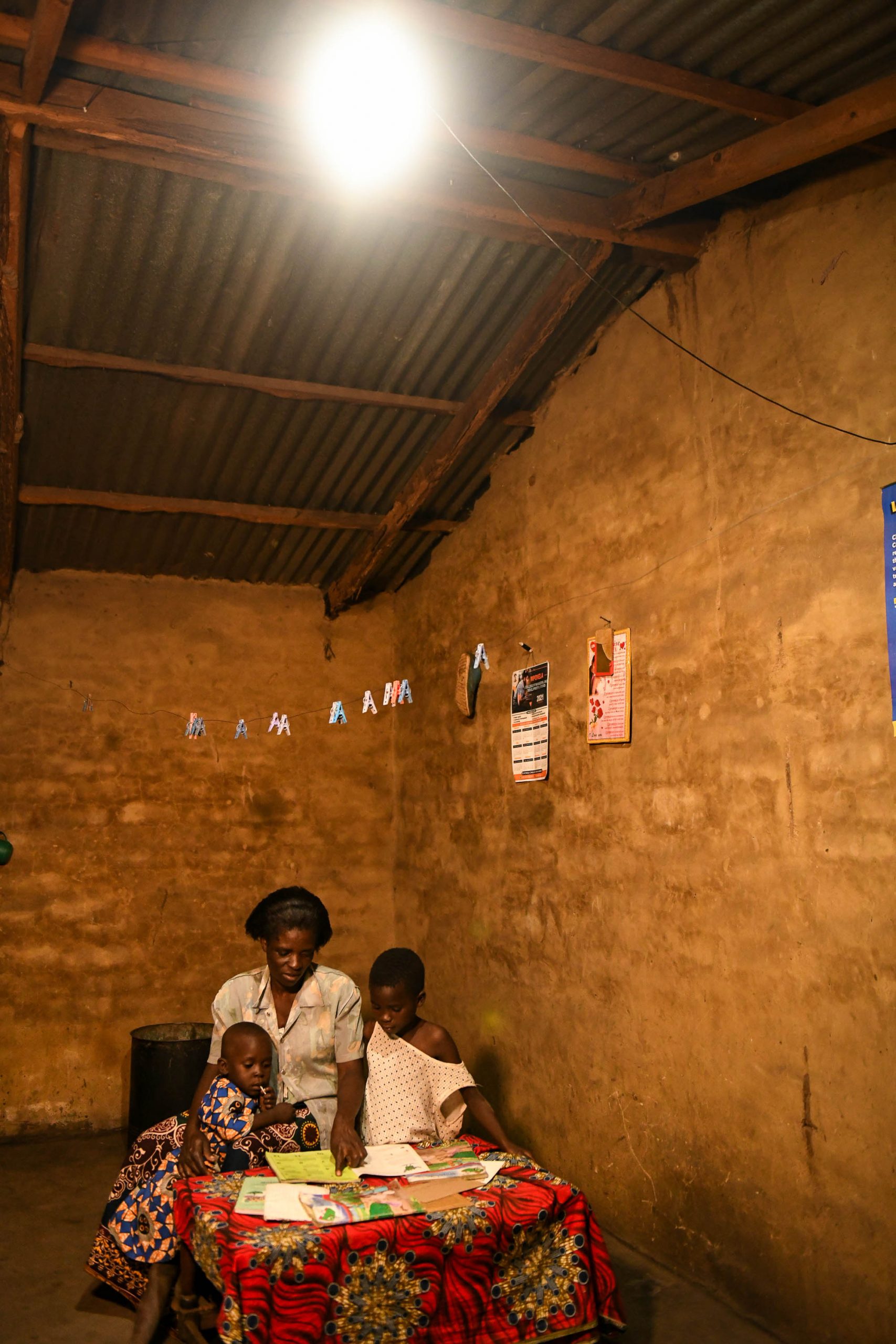
Nelia Mbewe helps her twin daughters with their homework. Photo: SolarAid/Thoko Chikondi
Nelia has a bright smile and she’s talkative and energetic, but she has been going through a difficult time since she separated from her husband, “I think solar lights replace the home security my husband provided before we separated. The girls and I feel safer.”
Now her hope for the future is that every household in Mandevu will have a clean source of light. “It’s a basic need,” she says.
And Nelia no longer has to worry about snakes. “All my fears are gone and I can sleep peacefully at night.”
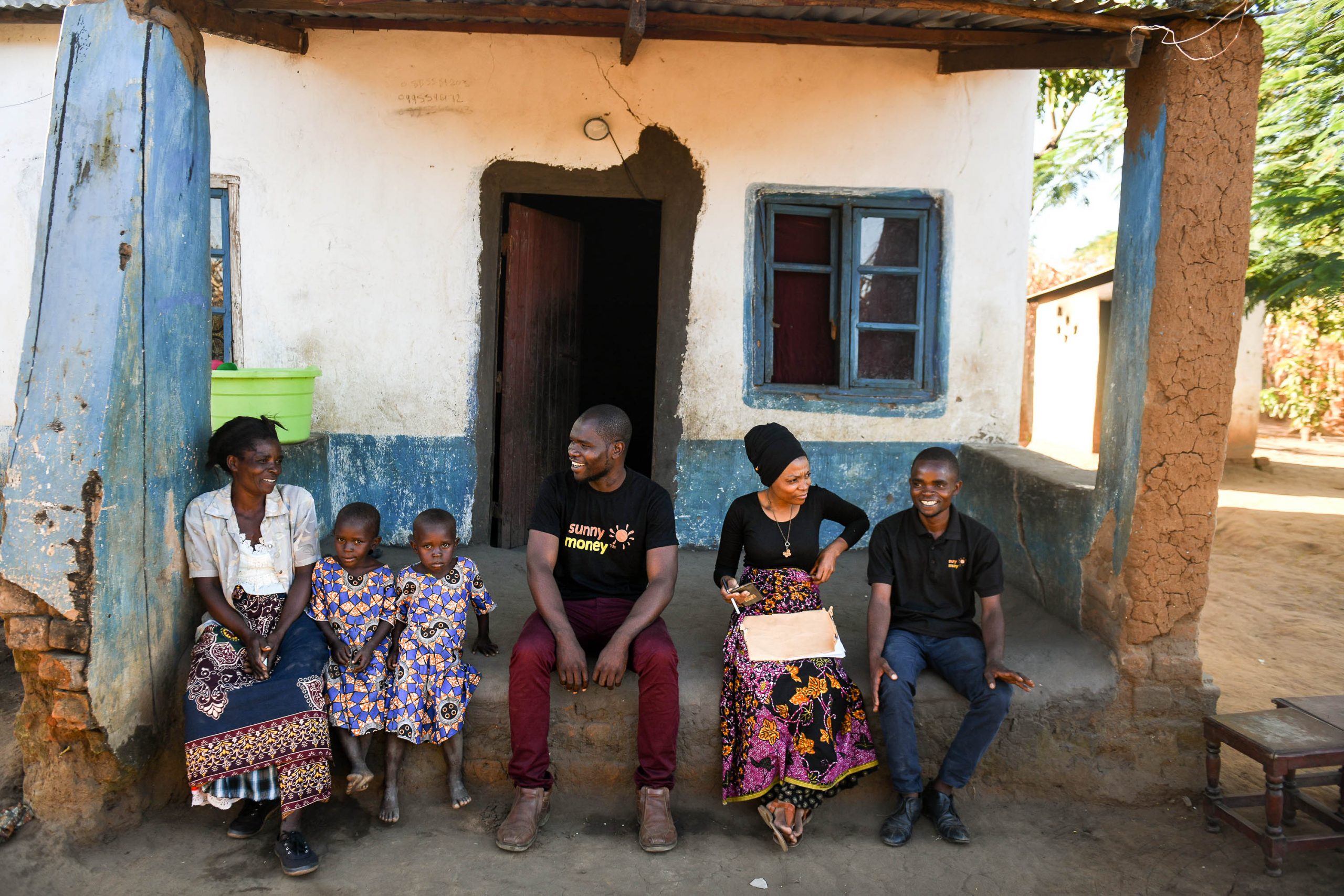
SunnyMoney staff visits Nelia Mbewe at her home. Photo: SolarAid/Thoko Chikondi
Our first reports coming out of Project Switch are showing us that 97% of solar light customers in the village say that they feel “very safe” with their current lighting source, a number that is up from 4% at the start of the project.
Everyone should have the right to feel safe when the sun sets, together we can End the Darkness and bring light to more families like Nelia’s.
Sign up to our newsletter to learn more about how solar lights are transforming the lives of families in sub-Saharan Africa.
